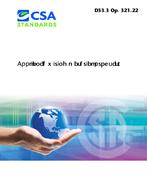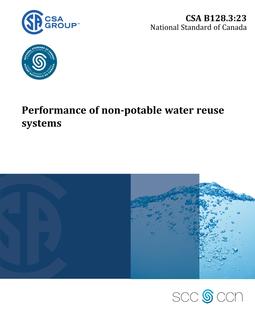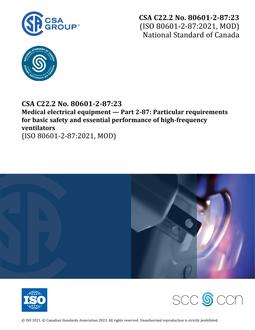
CSA C22.2 No. 210-11
Click here to purchase
Preface
This is the third edition of CSA C22.2 No. 210, Appliance wiring material products, one of a series of Standards issued under Part II of the Canadian Electrical Code. It supersedes the previous edition, published in 2005, which replaced CAN/CSA-C22.2 No. 210.2-M90.
Scope
1.1
This Standard applies to single- or multiple-conductor, round, flat, or coiled appliance wiring material products classified as follows:
(a) Class I – internal wiring of equipment (single- or multiple-conductor constructions with or without an insulating covering, covering or jacket):
(i) Group A – not subject to mechanical abuse; and
(ii) Group B – potentially subject to mechanical abuse;
(b) Class II – external/interconnecting wires (single- or multiple-conductor constructions with a jacket):
(i) Group A – not subject to mechanical abuse; and
(ii) Group B – potentially subject to mechanical abuse.
Notes:
(1) As there is a great variety of applications for appliance wiring material products, the use of such a product should be evaluated with the design and construction of the end-use application in mind and should not be judged solely by the requirements of this Standard.
(2) Class I and II products are Group A, B, or both.
(3) Group markings (A, B, or both) relate to tests performed on the individual insulated conductors. Group marking that includes both A and B means all insulated conductors pass Group B tests.
(4) See Clause 4.1.
1.2
This Standard also applies to appliance wiring material products that have a jacket or overall insulating covering and are used to connect or interconnect data processing and similar systems in accordance with the Canadian Electrical Code, Part I.
1.3
In CSA standards, “shall” is used to express a requirement, i.e., a provision that the user is obliged to satisfy in order to comply with the standard; “should” is used to express a recommendation or that which is advised but not required; and “may” is used to express an option or that which is permissible within the limits of the standard.
Notes accompanying clauses do not include requirements or alternative requirements; the purpose of a note accompanying a clause is to separate from the text explanatory or informative material.
Notes to tables and figures are considered part of the table or figure and may be written as requirements.
Annexes are designated normative (mandatory) or informative (nonmandatory) to define their application.
Product Details
- Edition:
- 3rd
- Published:
- 10/01/2011
- ISBN(s):
- 9781554915163
- Number of Pages:
- 62
- File Size:
- 1 file , 710 KB
- Product Code(s):
- 2421417, 2421417


